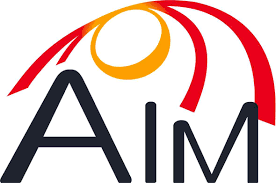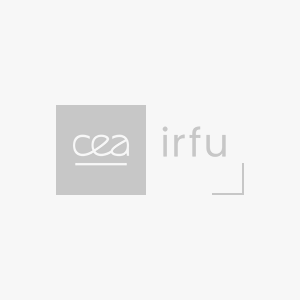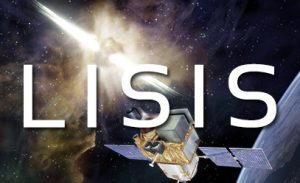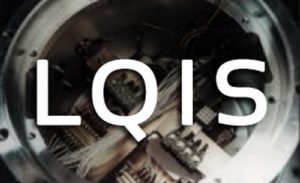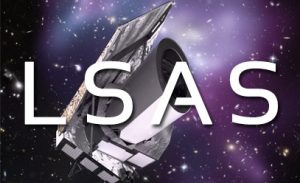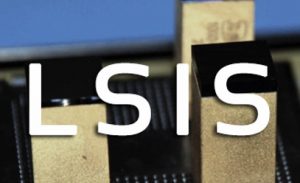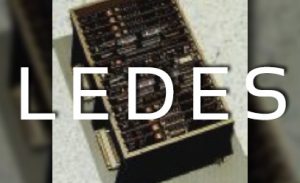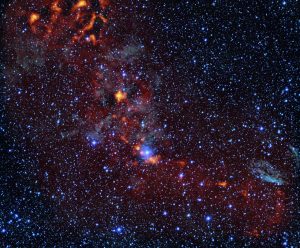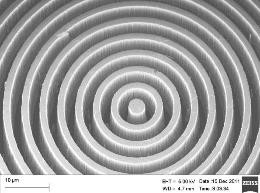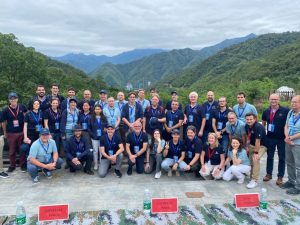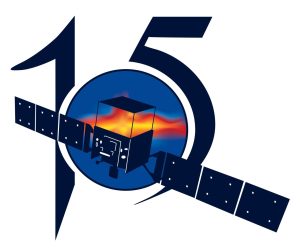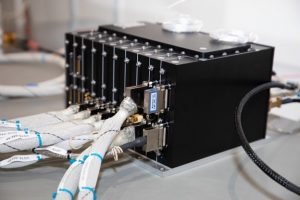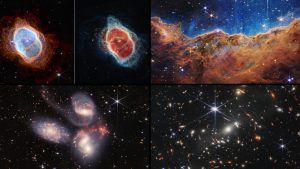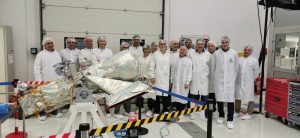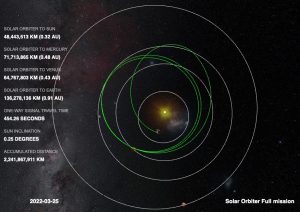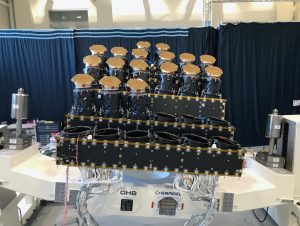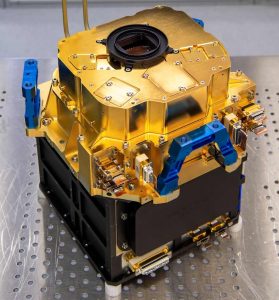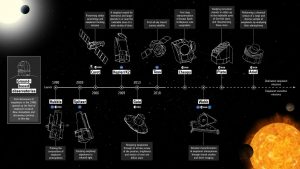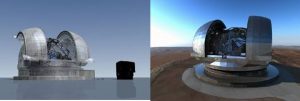The AIM instrumentation team oversees the development of cutting-edge spectro-imaging instruments for space missions. Their activities encompass the overall management of instruments, the design and development of systems or subsystems (notably focal planes and their electronics), as well as the assembly, integration, verification, and testing of the developed systems. The team also conducts R&D research, particularly on new detectors.
Objectives of AIM’s instrumentation activity
- The selection of space and terrestrial missions in which AIM participates;
- The need to advance the development of new detector technologies, mainly in our two traditional domains of high energies (X-rays and gamma rays) and low energies (infrared and sub-millimeter), along with the associated R&D.
The first satellites equipped with locally built instruments were launched in 1975 to study the high-energy Universe. Twenty years later, in 1995, we participated for the first time in an infrared mission with the Infrared Space Observatory. These two extremes of the electromagnetic spectrum, covering hard and soft radiation, have since become the main pillars around which space astrophysics at AIM has been built. The involvement in the design of the wide-field imager MEGACAM (first light in January 2003) paved the way for our participation in the Euclid mission twenty years later, particularly with the VIS instrument. At the time of its official first light in January 2003, MEGACAM was the largest astronomical CCD mosaic ever built and remained at the forefront for many years.
The period from 2018 to 2023 was extremely rich and productive, despite the COVID pandemic and the rise of remote work. The first six elements of our portfolio highlight the achievements of the instrumentation team. In terms of R&D, we can mention the first laboratory measurements of innovative bolometer array performance for the submillimeter range, capable of on-chip polarization measurement, developed in collaboration with CEA/Irfu/DEDIP (electronics) and CEA/Leti. Regarding instrumentation, we can highlight the flawless operation of the CALISTE detectors of the STIX instrument on board Solar Orbiter, the delivery of the flight model camera for the MXT instrument of the French-Chinese SVOM space mission, the successful preliminary design review of the Ariel/AIRs instrument that we lead, the commissioning of the JWST/MIRI instrument, as well as the first images captured by Euclid.
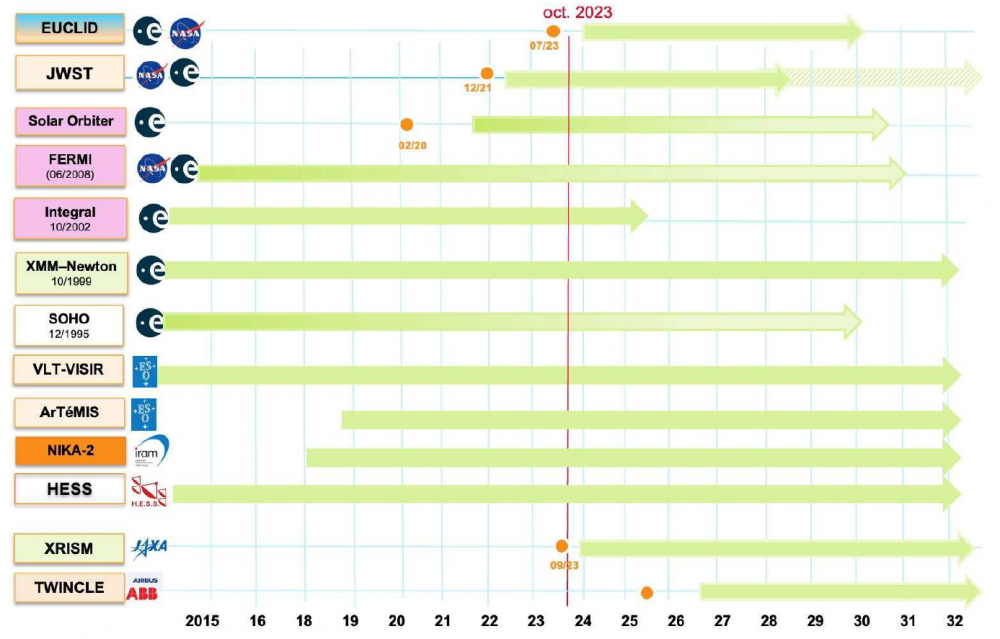
Instrumental teams within AIM
The instrumentation division is organized into five teams based on their expertise:
- Space Systems and Architectures: This team is responsible for defining the system architecture and maintaining technical oversight throughout the design, production, and testing of the various instrument models;
- Spectro-Imagers for Space: The team conducts R&D on detectors ranging from far infrared to gamma-ray wavelengths, including bolometers, microcalorimeters, and semiconductors;
- Studies and Development of Space Electronic Systems: This team is in charge of defining, designing, and developing embedded electronic equipment;
- Quality Assurance and Space Integration: The team supports space projects in terms of Product Assurance and Quality Assurance for AIT (Assembly, Integration, and Testing) activities throughout the development and implementation phases;
- Science and Space Instrument Interface: This team operates at the interface between science and space instruments, from the design phases through to in-flight operational phases.
Permanent members of the instrumental center
ARDELLIER-DESAGES Florence, BAUMANN Marion, BERTHE Michel, BOREUX Charles, BOULADE Olivier, CAPOCCI Thomas, CARA Christophe, CLARET Arnaud, CORDIER Bertrand, DALY Francois, DELISLE Cyrille, DOUMAYROU Eric, DUMAYE Luc, FERRANDO Philippe, FONTIGNIE Jean, FRUGIER Pierre-Antoine, GALLAIS Pascal, GREGOIRE Emmanuel, GROS Aleksandra, HERVIOU Christian, HOREAU Benoit, HUYNH Duc-Dat Instrumentation, KASZUBIAK Gregory, KETCHAZO NSENGUE Christian, LANDRIU David, LE MER Isabelle, LIMOUSIN Olivier, LORTHOLARY Michel, MARTIGNAC Jerome-Gchr, MEURIS Aline, MOREAU Vincent, MORIN Bertrand, OKUMURA Koryo, ORDUNA Thierry, PICHON Thibault, PINSARD Frederic, POITAYA Arjun, PONTREAU Sebastien, PRIEUR Marin, PROVOST Lena, RENAUD Diana, REVERET Vincent, RODRIGUEZ Louis, RONAYETTE Samuel, SADIBEKOVA Tatyana, SAUVAGEON Aymeric, SAUVAGEOT Jean-Luc, SCHANNE Stephane, TAZHENOVA Kamshat, TOURRETTE Thierry, TRIOU Henri, VANEL Abel,

